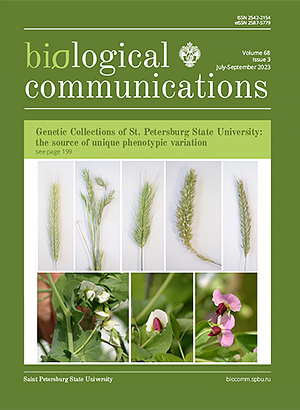Cancer as a potential sequela of COVID-19 — should we modify 3D cell culture models accordingly?
DOI:
https://doi.org/10.21638/spbu03.2023.307Abstract
COVID-19 pandemic was caused by SARS-CoV-2, a novel virus from the family Coronaviridae, firstly identified in Wuhan, China in 2019. COVID-19 remains one of the main challenges of healthcare, given growing numbers of people with COVID-19 in anamnesis, and given the long-lasting consequences and complications of this disease. Cancer is one of the most common diseases in the world, thus a big part of the population is affected by both COVID-19 and cancer. In this succinct review we refer to several recent works expressing a view that COVID-19 might be oncogenic, and describe molecular mechanisms of such phenomena. Next, we describe several tumorigenic changes in the tissue microenvironment as COVID-19 sequelae, which can potentially affect cancer pathogenesis and response of a tumor to therapy. 3D cell culture models are a “golden standard” of in vitro studies in translational oncology. To the best of our knowledge, 3D cell culture systems to study tumor behavior in the tissue microenvironment affected by COVID-19 have not been developed yet. We propose several actionable steps which can be taken to modify existing 3D cell culture models accordingly, to address the needs of translational oncology in the COVID-19 post-pandemic times.
Keywords:
COVID-19, SARS-CoV-2, 3D cell culture models, tumor microenvironment, malignant tumors, translational medicine, personalized medicine, drug development, oncology
Downloads
References
Downloads
Published
How to Cite
License
Articles of Biological Communications are open access distributed under the terms of the License Agreement with Saint Petersburg State University, which permits to the authors unrestricted distribution and self-archiving free of charge.





